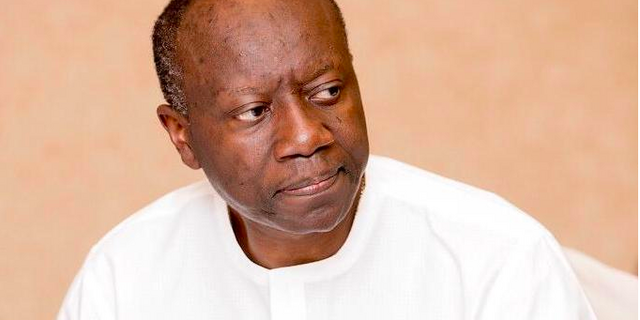The Chairperson of the Board of Governors of the African Development Bank (AfDB) Mr Ken Ofori-Atta, says Africa needs about $3 trillion to enable it to reduce climate change vulnerabilities.
The extent to which humans, natural species, and the physical environment are vulnerable to and unable to cope with the negative effects of climate change is referred to as climate change vulnerability.
Droughts that are more frequent and severe, storms that are more violent, heat waves, rising sea levels, melting glaciers, and warmer oceans are all threats to animals, their habitats, and people’s livelihoods and communities.
Mr Ken Ofori-Atta, said: “Africa now needs close to $3 trillion in additional resources to finance the implementation of nationally determined contributions (NDCs) and reduce climate vulnerabilities.”
He mentioned this during the commencement of the African Development Bank’s Board of Governors’ annual meetings in Accra on Tuesday.
The week-long conference will focus on “Achieving Climate Resilience and a Just Energy Transition for Africa,” as well as discussions about the continent’s energy transition difficulties.
Mr Ofori-Atta, who is also Ghana’s Finance Minister, stated that the continent needs approximately $66 billion in health spending and $39 billion in education funding.
He mentioned this in acknowledgement of the $1.7 trillion development and funding gap estimated by the United Nations Economic Commission for Africa (UNECA).
The continent’s infrastructure financing gap has also widened to approximately $130 billion-$170 billion annually until 2025.
Mr Ofori-Atta, said, “Given the current local and global dynamics, it has become imperative that we vigorously mobilise resources through innovative means, including from the digital space.”
‘As worldwide momentum around climate action accelerates, we need our development institutions to guide a pragmatic transition for Africa that balances our developmental aspirations with realistic net-zero targets,” he added.
Africa is responsible for under four per cent of global emissions but is disproportionately affected by climate change and the actual opportunity cost of meeting COP26 targets.
He said despite the vast opportunities for green investments, Africa attracted less than one per cent of global green bond issuances, estimated at $600 billion
He states that only 21 African countries have access to international capital markets, which is costly, as African countries pay higher interest rates than their peers with equal or worse economic fundamentals.
“Even after accounting for economic factors, estimates of what can be called the African premium range from 100 to 260 basis points,” remarked the Chairperson of the AfDB Board of Governors.
He then asked the African Development Bank to stay dedicated to providing competitive lending to its members in order to close the growing development and financial gap.
“Positioning our Bank to crowd in the critical finance for climate must continue to focus our attention,” he said.

